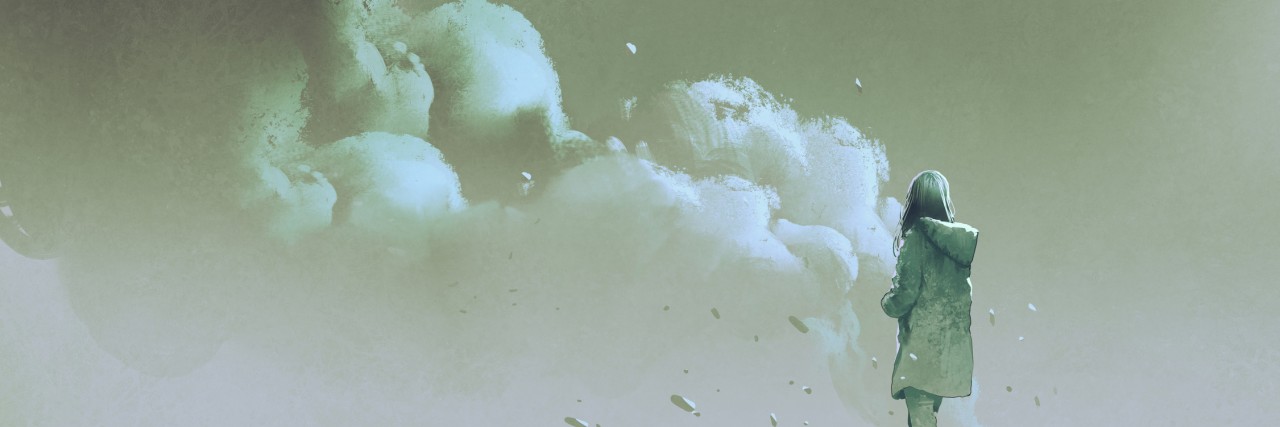Living With Complex Post-Traumatic Stress Disorder After Trauma
Editor’s Note: If you’ve experienced domestic or sexual violence, the following post could be potentially triggering. You can contact The National Domestic Violence Hotline online by clicking “chat now” or you can contact the National Sexual Assault Telephone Hotline at 1-800-656-4673.
If you saw me on an average day, you’d see a smiling, bubbly, hardworking, young adult. I love my job, I love my friends, I love my fiancé.
However, what a lot of people don’t see is me with the mask off. The “I don’t care” front removed. The makeup off, in baggy clothes, curled up in a corner fighting off my mind.
When I take my armor off, after a long battle called “getting through the day,” I’m sad. I experience hellish hallucinations, voices and noise, constantly. Flashbacks near constantly. The nightmares that wake me up screaming, stuck in a trance of terror, while my fiancé desperately fights to get me out of it.
I have been diagnosed with complex post-traumatic stress disorder (PTSD), major depression and severe anxiety. When I got my PTSD diagnosis, I felt numb. They’re wrong. What happened to me wasn’t that bad, I thought.
It was, however, that bad. I’m constantly telling myself I’m allowed to feel this way, that while other people may have it worse, it doesn’t invalidate my pain. I ignored my illness for so long, refusing to believe I was sick. I sank into drinking and drugs, desperately trying to forget — all while working myself to the bone. Refusing to get too close to anyone. Not taking care of myself because I’d be violated and intruded upon and it didn’t feel like my body anymore.
The truth is, for me, being a trauma survivor isn’t beautiful or poetic or romantically sad or inspiring. PTSD is a brutal illness that twists the way you see people. It twists your mind and you’re so stuck in the past you can’t think about the present, let alone the future. How can you get over your illness if you’re being pummeled with technicolor, high resolution flashbacks all day? How can you get over it, when you can see your abuser standing before you, but he’s not really there?
I hate myself for allowing this to happen to myself. Some people can say they’ve had a string of lovers, while I can say I’ve had a string of abusers.
I only really stopped being abused about 10 months ago. The last attempt on my life was four months ago. I was so used to my body being used and invaded against my will, but I’d trot off to work the next morning and then see my friends. How on earth did I cope?
The mind is strange like that. When you’re forced to cope, you just do.
My fiancé was my saving grace. He was my best friend at the time and he helped me get out of that abusive situation. It hasn’t been easy for him, dealing with my illness. I can’t thank him enough for being strong and believing in me when I can’t.
Living with PTSD is one of the hardest things to cope with. The sad thing is, one in five of us has been abused. Anyone could be a trauma survivor, putting on a mask to appear OK, hoping they’ll convince themselves as well as you. End the stigma. End the rape jokes. Put a stop to rape culture.
I am a trauma survivor. And it will get better. It will get better, for all of us. We’re not alone.
If you or a loved one is affected by sexual abuse or assault and need help, call the National Sexual Assault Telephone Hotline at 1-800-656-4673 to be connected with a trained staff member from a sexual assault service provider in your area.
Thinkstock photo via Grandfailure.

